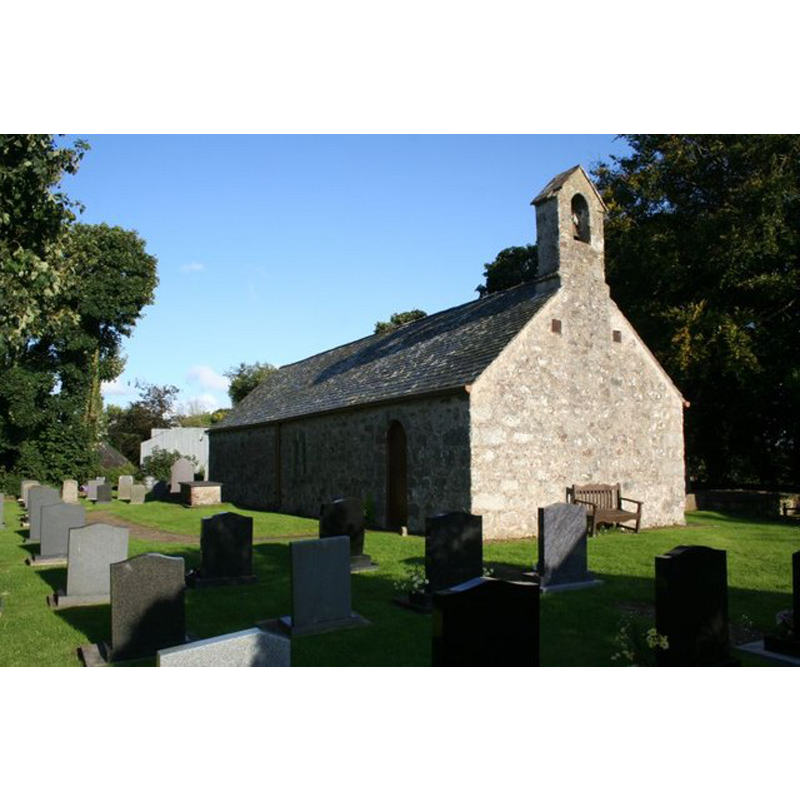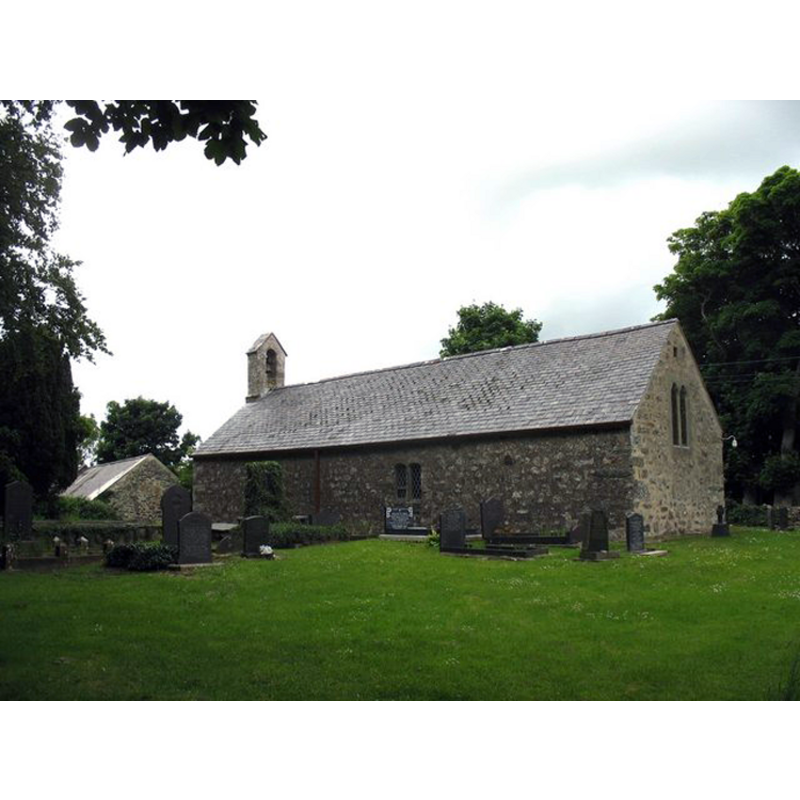Llanfair-y-Cwmmwd / Llanfair Cwmmwd / Llanfair-yn-y-Cwmwd
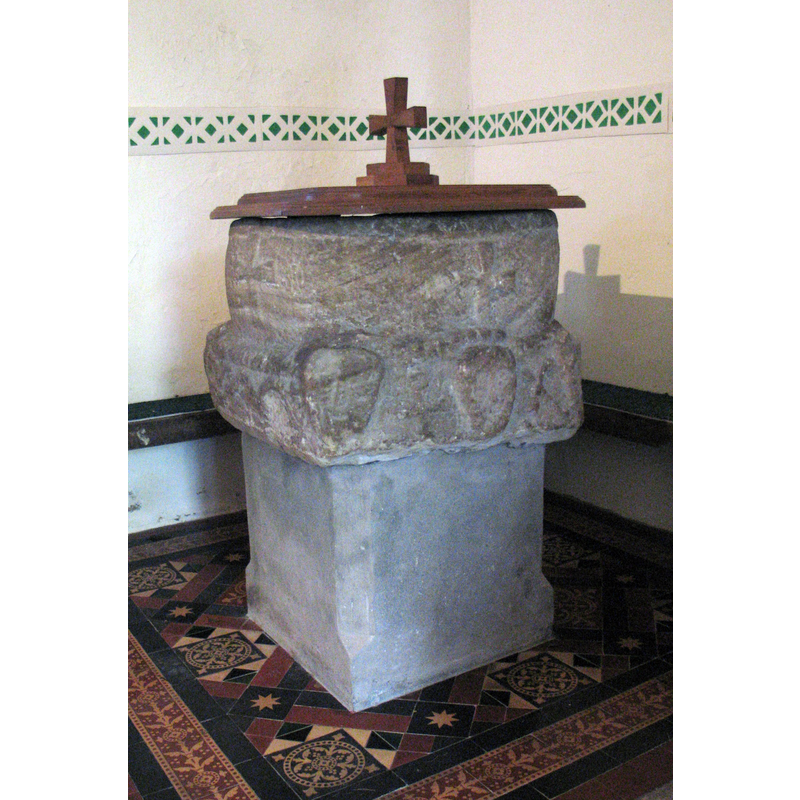
Image copyright © Madeleine Gray, 2009
Image and permission received (e-mail of 12 September 2013)
Results: 10 records
B: symbol - cross - Greek - 4
view of font and cover
view of font
design element - motifs - rope moulding
Scene Description: around the side of the font, framing some of the other motifs/symbols
Copyright Statement: Image copyright © Madeleine Gray, 2009
Image Source: detail of a digital photograph taken 20 November 2009 by Madeleine Gray
Copyright Instructions: Image and permission received (e-mail of 12 September 2013)
design element - motifs - chevron
design element - motifs - zigzag
human figure - head - 5
symbol - cross - Greek
view of church exterior - northwest view
Copyright Statement: Image copyright © Bill Nichols, 2008
Image Source: digital photograph taken 1 September 2008 by Bill Nicholls [www.geograph.org.uk/photo/965794] [accessed 1 September 2008]
Copyright Instructions: CC-BY-SA-3.0
view of church exterior - southeast view
Copyright Statement: Image copyright © Eric Jones, 2008
Image Source: digital photograph taken by Eric Jones 13 June 2008 [www.geograph.org.uk/photo/844119] [accessed 19 September 2013]
Copyright Instructions: CC-BY-SA-3.0
INFORMATION
Font ID: 05452LLA
Object Type: Baptismal Font1
Font Century and Period/Style: 12th century (late?) [basin only] [composite font], Medieval [composite]
Church / Chapel Name: Parish Church of St. Mary
Font Location in Church: Inside the church
Church Patron Saint(s): St. Mary the Virgin
Site Location: Anglesey, Gwynedd, Wales, United Kingdom
Directions to Site: Located near Dwyram, 3 km NE of Newborough, on the NW shores of the Menai Straits, 7 km across from Caernarfon, 10 km from Bangor
Ecclesiastic Region: Diocese of Bangor
Historical Region: Hundred of Menai
Additional Comments: damaged font: a large chunk is missing from the upper rim of the basin; on a modern base
Font Notes:
Click to view
Romilly Allen (1884) writes: "The cross symbol does not occur frequently on fonts of the Norman period. Early examples are to be found at Llanfair y Cymwd, and at Llan Jestyn, in Anglesey [...], also at Kea, in Cornwall" [footnote: "Archaeological Journal, vol. i, p. 126"]. Mentioned in Bond (1908) as having an oval form, a shape " common in the fonts of Anglesea" [/Anglesey]. Described in Tyrrell-Green (1928) as a tank-like baptismal font of the Norman period, oblong, and ornamented with six (?) human heads. Described and illustrated by Lord, in Diwylliant... (1998-2003), who dates it to the 12th century; Lord suggests that one of the heads, the one that has a cross over it and another on the side, may represent Christ. Stocker (1997) remarks on the shape which he refers to the sarcophagus and the theme of burial. Noted and illustrated in Thurlby (2006) who suggests a date contemporary with the head-decorated Cornish fonts of the late 12th century [NB: Thurlby identifies five heads -- Tyrrell-Green [cf. supra] gives six]]
Credit and Acknowledgements: We are grateful to Dr. Madeleine Gray, of the School of Education/Ysgol Addysg, University of Wales, Newport/Prifysgol Cymru, Casnewydd, for her photographs of this font
COORDINATES
UTM: 30U 411431 5892583
Latitude & Longitude (Decimal): 53.17522, -4.325155
Latitude & Longitude (DMS): 53° 10′ 30.79″ N, 4° 19′ 30.56″ W
MEDIUM AND MEASUREMENTS
Material: stone
Number of Pieces: one
Font Shape: oblong, mounted
Basin Interior Shape: oval
Basin Exterior Shape: oblong (oval top, rectangular bottom)
LID INFORMATION
Date: modern
Material: wood
Apparatus: no
Notes: square, with a Greek cross finial/handle
REFERENCES
- The Visual Culture of Wales = Diwylliant gweledol Cymru, Cardiff: University of Wales Press, 1998-2003, vol. 3: p. 83 and pl. 108
- Allen, J. Romilly, "Notes on Early Christian Symbolism", N.S., VI, Proceedings of the Society of Antiquaries of Scotland, 1884, pp. 380-464; p. 395
- Bond, Francis, Fonts and Font Covers, London: Waterstone, 1985 c1908, p. 58n
- Stocker, D.A., "Fons et origo: The Symbolic Death and Resurrection of English Font Stones", I (1997b), Church Archaeology, 1997, pp. 17-25; p. 22
- Thurlby, Malcolm, Romanesque architecture and sculpture in Wales, Little Logaston, Woonton, Almeley, Herts.: Logaston Press, 2006, p. 231 and fig. 330
- Tyrrell-Green, E., Baptismal Fonts Classified and Illustrated, London: Society for Promoting Christian Knowledge: The Macmillan Co., 1928, p. 48, 73
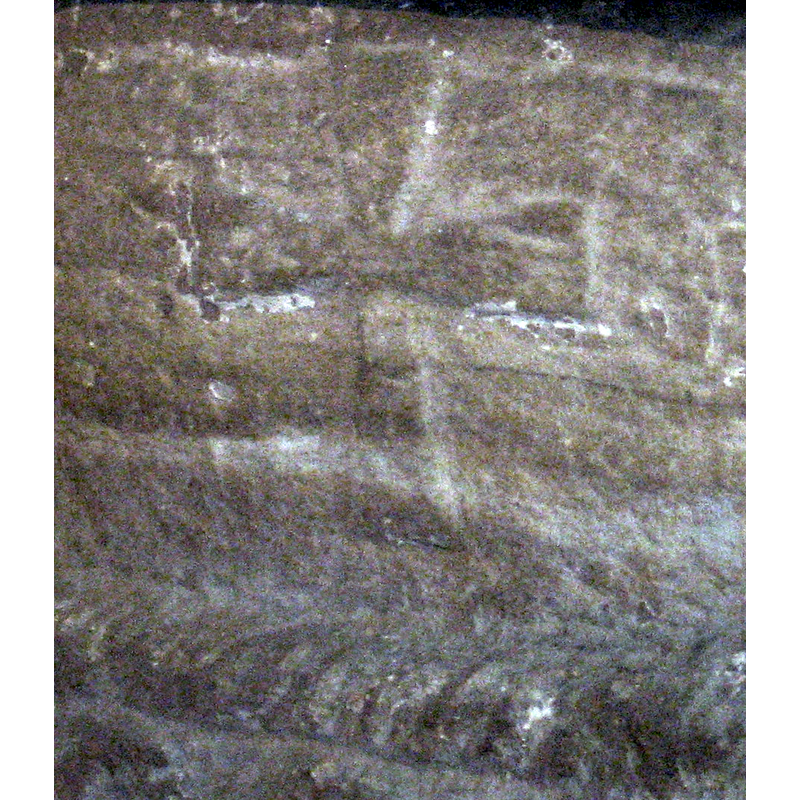
![[cf. Font notes]](/static-50478a99ec6f36a15d6234548c59f63da52304e5/compressed/1130919009_compressed.png)
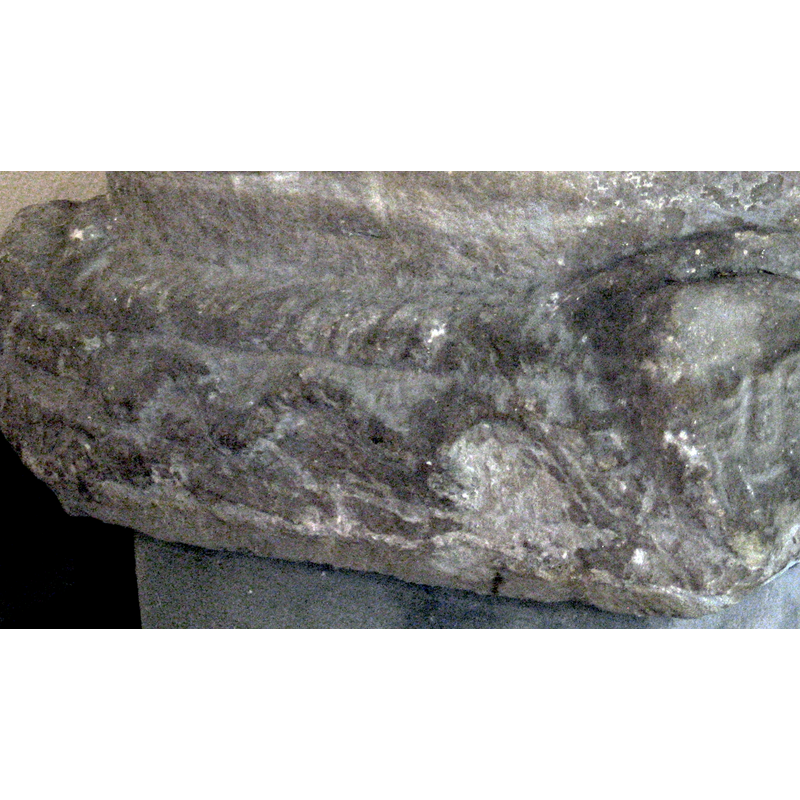
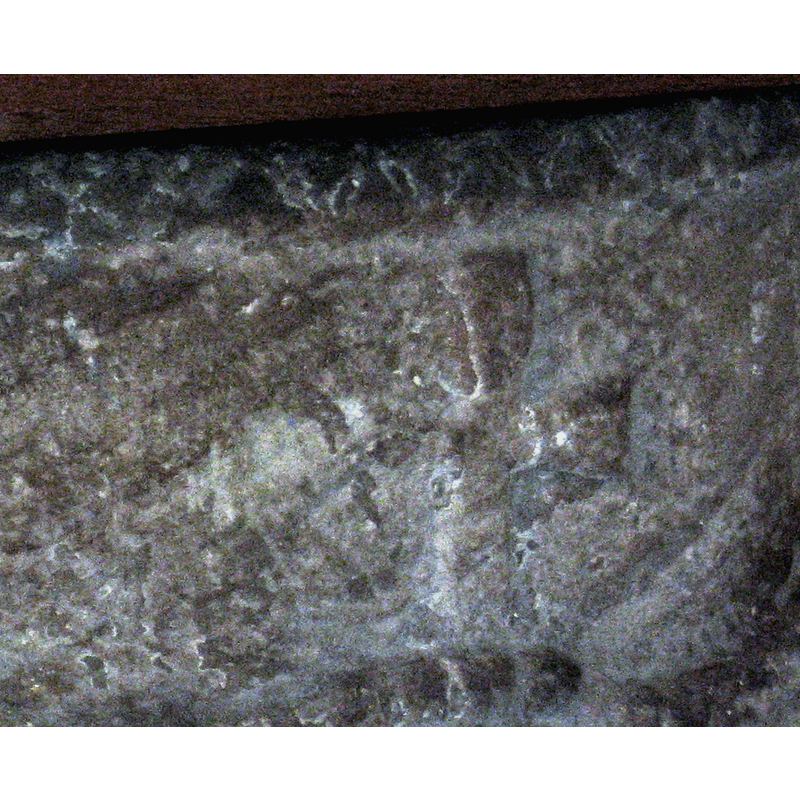
![[cf. Font notes]](/static-50478a99ec6f36a15d6234548c59f63da52304e5/compressed/1130919013_compressed.png)
